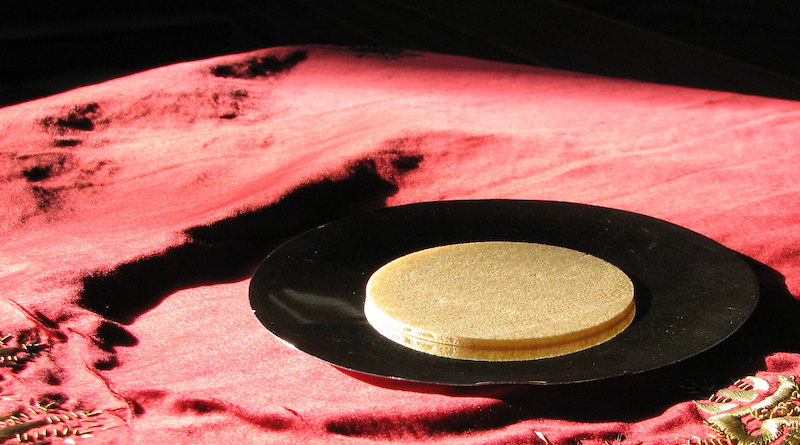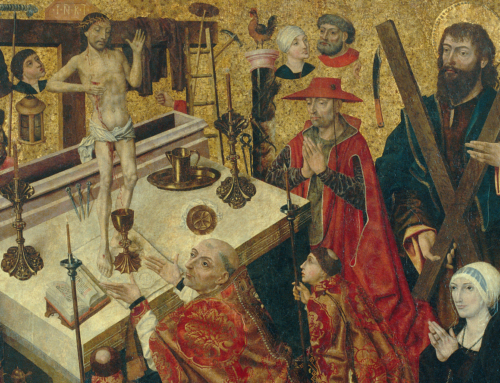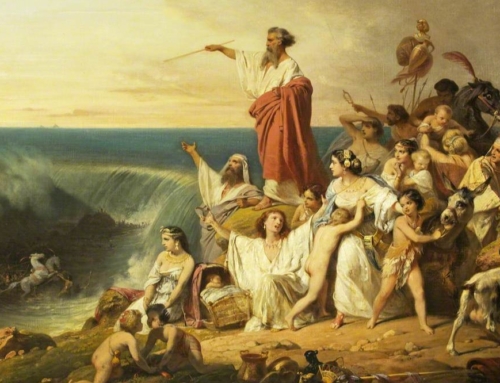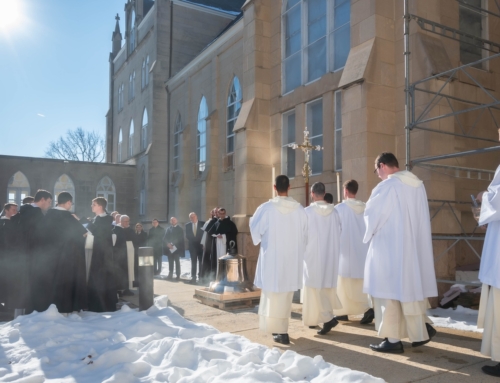Is there a point to bringing the bread and wine to the priest during the Mass? Why not just keep them near the altar and save someone the trouble? The Acts of the Apostles actually has quite a bit to say about this. The book presents us with the outpouring of the Holy Spirit in the Church, the Mystical Body of Christ. In the very first verse, Saint Luke says that his Gospel dealt with all that Jesus began to do and teach. But Jesus continues to act on earth through his Church, his Mystical Body. In Acts, the Church—the body of Apostles—performs the same actions that Christ performed on earth: preaching, praying, teaching, healing, forgiving sins, choosing apostles, and raising the dead.
Today, we do not commonly see the miraculous manifestations recorded in Acts, yet we see Christ continue his saving work in the acts of his faithful, from deeds of heroic charity to simple offerings of bread and wine. He invites us to participate in his work of salvation, not because he needs our help, but so that we may be perfected by entering into such work.
This grand drama is symbolically displayed in the offertory procession of the Mass. The General Instruction of the Roman Missal states that “it is a praiseworthy practice for the bread and wine to be presented by the faithful” (GIRM 73). As the words of the Mass remind us, bread and wine are “the work of human hands,” and so the faithful bring up their labors to the priest who is acting in the person of Christ the Head. One may object that the person bringing up the gifts did not actually make the bread or the wine. But as Saint Paul reminds us, “What do you have that you did not receive?” (1 Cor. 4:7). Everything that we have, we have from God. Any meritorious act we perform comes from the grace of Christ, received through his Church.
The offertory procession illustrates that Christ is both the origin and end of all that we do and offer to God. But there is an even deeper mystery here. The Mass transforms the offertory from a symbolic ritual gesture into an immersion into the very life of the Trinity. The bringing of the gifts has the practical end of providing the priest with the matter for the Sacrifice of the Mass. Here, we see that our participation in the Mass is a participation in Christ’s sacrifice on the cross to God the Father. And we are able to participate in the love between the Father and the Son by the gift of the Holy Spirit, who has filled us with the grace to be at Mass and participate in the offertory. In a simple and brief procession, we are caught up in the interior life of the Trinity. Stepping back, we see that the offertory procession reveals God as the source of all we are and all we do, God as the means of all we are and all we do, and God as the ultimate end of all we are and all we do. And all this, not because he needs us, but because he loves us. May we be reminded of this in our work and sacrifices throughout the week, which we offer to God at the Mass.
✠
Photo by Fr. Lawrence Lew, O.P. (used with permission)







